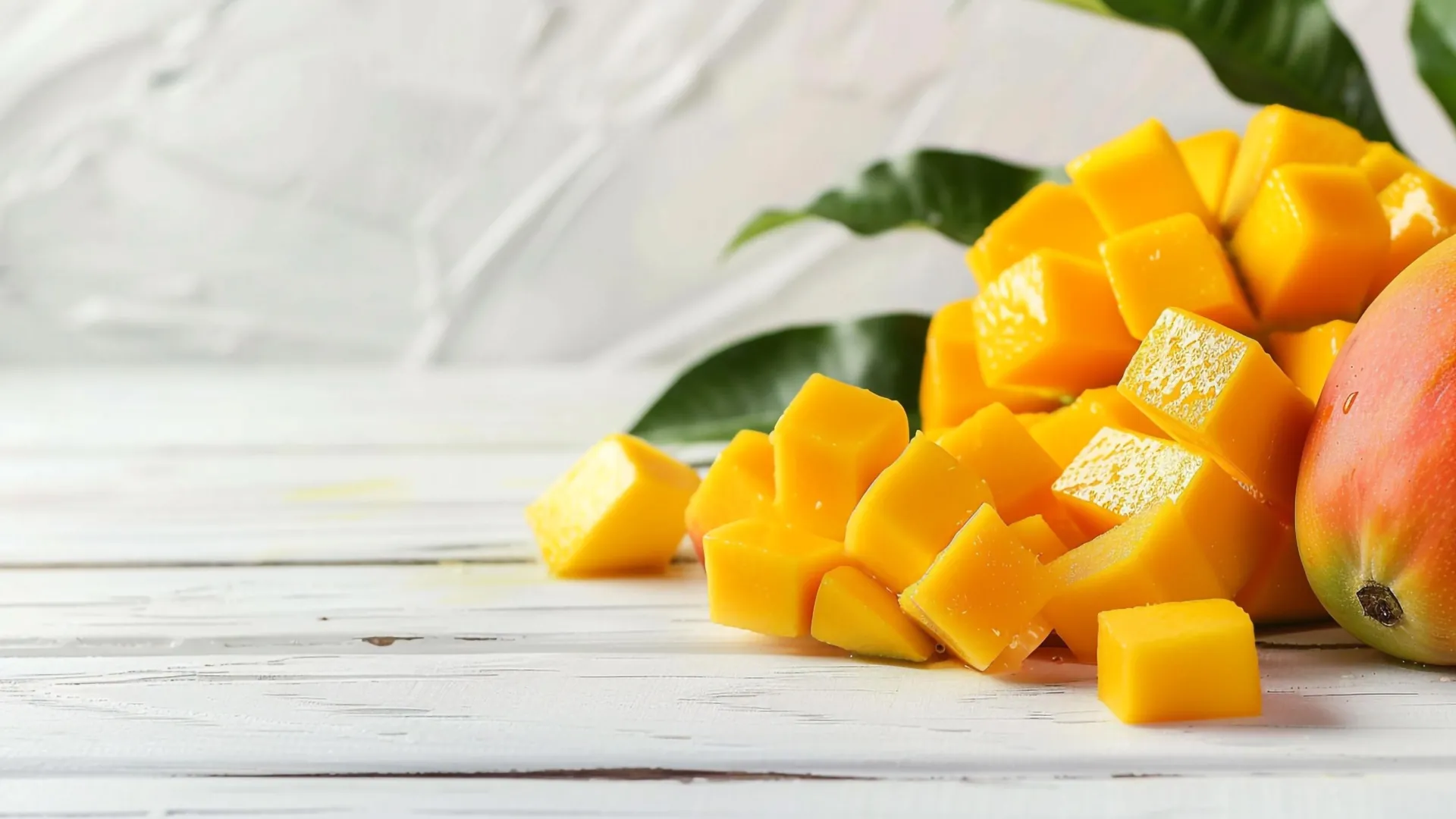This high-sugar fruit may actually lower diabetes risk
Mangos beat low-sugar snacks in a study, improving blood sugar and body fat in prediabetics.
- Date:
- September 25, 2025
- Source:
- George Mason University
- Summary:
- Mangos, often dismissed as too sugary, may hold hidden benefits for those at risk of diabetes. A George Mason University study found that daily mango eaters showed better blood sugar control and less body fat than those eating a lower-sugar snack. The results suggest that it’s not just sugar levels, but how the sugar is packaged in whole foods, that matters.
- Share:

If presented with two snacks, one containing seven grams of sugar and another with over 30 grams of sugar, choosing the healthier option should be a no-brainer, correct? Well, maybe not. Less sugar is not automatically healthier.
For the nearly 100 million adults in the United States who are currently living with prediabetes, a tropical fruit that can reduce the risk of diabetes sounds too good to be true. Tropical fruits contain anywhere between ten to 50 grams of sugar, with mangos on the high end of the spectrum, making them seem a poor snack choice based on that alone. But research by clinical nutrition researcher Raedeh Basiri indicates that mangos, despite having more sugar than many low-sugar snacks, may offer protective factors for adults with prediabetes.
"It is not just the sugar content that matters, but the overall food context that matters," said Basiri, assistant professor in George Mason's Department of Nutrition and Food Studies. This study is the first long-term clinical trial to demonstrate both metabolic and body composition benefits of mangoes in prediabetes.
Simply put, it's more than the sugar in the food; it's about the whole food. The sugars naturally found in mangos, and other fruits, are complemented by fiber and other vitamins and nutrients that offer additional health benefits. Food with added sugar, such as breakfast cereals, and even low-sugar snack options, may not have the same nutritional value and can even increase diabetes risk.
"The goal is to encourage people to include whole fruits, like mango, as part of healthy eating behaviors and practical dietary strategies for diabetes prevention," said Basiri. "Individuals at high risk of diabetes should not only focus on the sugar content of foods, but on how sugars are delivered."
Basiri and her team split study participants into two groups; one group received a fresh mango daily, while the other group was given a low-sugar granola bar each day. Over six months, researchers measured participants' blood glucose levels, bodily responses to insulin, and body fat.
At the conclusion of the study, findings revealed that the high-sugar mango (32 grams of sugar) proved more beneficial than a low-sugar granola bar (11 grams of sugar). The group that consumed the daily mango showed improved blood glucose control, enhanced insulin sensitivity, and reduced body fat.
"Daily Mango Intake Improves Glycemic and Body Composition Outcomes in Adults with Prediabetes: A Randomized Controlled Study" was published in Foods in August 2025.
This study was funded by the National Mango Board. The authors declare no other potential conflicts of interest. The funders had no role in the design of the study, in the collection, analysis, interpretation of data, or the decision to publish results.
About the researcher
Raedeh Basiri is a registered dietitian and an assistant professor in the Department of Nutrition and Food Studies at George Mason's College of Public Health. Basiri is a clinical nutrition researcher specializing in personalized nutrition therapy and the use of emerging technologies, such as continuous glucose monitoring, to improve outcomes in individuals with prediabetes, diabetes, and metabolic syndrome. Her work combines randomized controlled trials and large-scale data analysis to investigate how whole foods and dietary patterns impact insulin resistance, glycemic control, sleep, and both mental and gut health. Basiri takes a rigorous, interdisciplinary approach and is deeply committed to chronic disease prevention, collaborative research, and mentoring future professionals.
Story Source:
Materials provided by George Mason University. Note: Content may be edited for style and length.
Journal Reference:
- Raedeh Basiri, Kallie Dawkins, Saiful Singar, Lauren T. Ormsbee, Neda S. Akhavan, Robert C. Hickner, Bahram H. Arjmandi. Daily Mango Intake Improves Glycemic and Body Composition Outcomes in Adults with Prediabetes: A Randomized Controlled Study. Foods, 2025; 14 (17): 2971 DOI: 10.3390/foods14172971
Cite This Page: